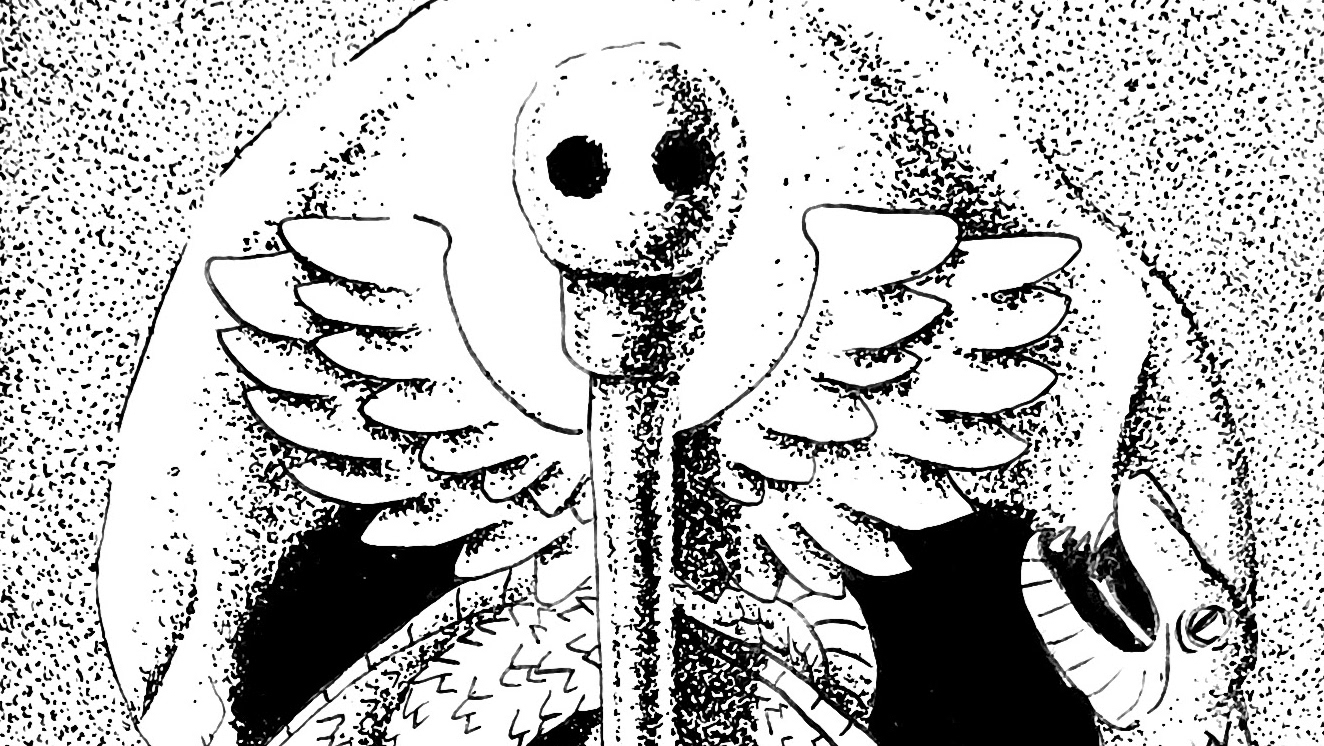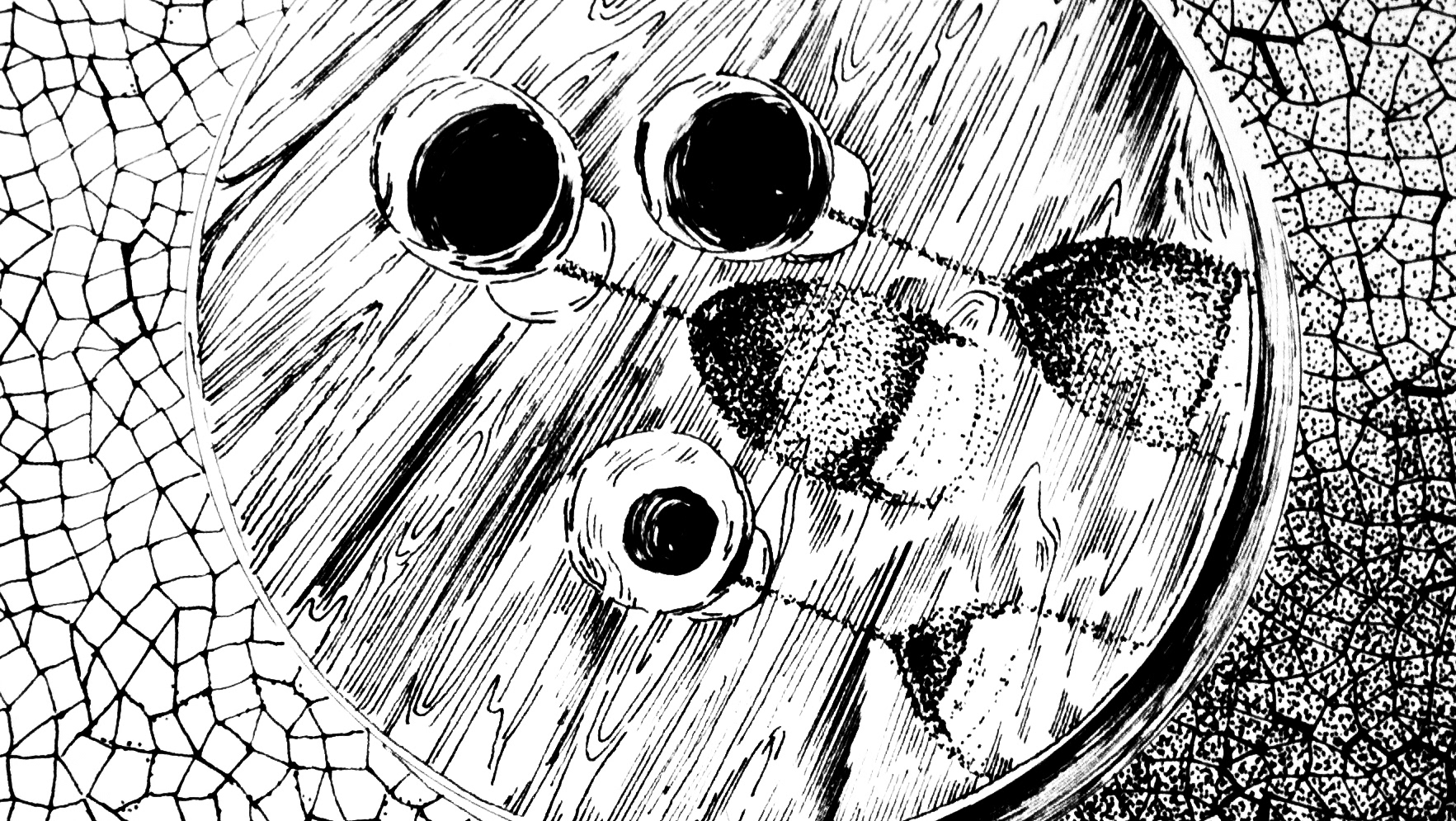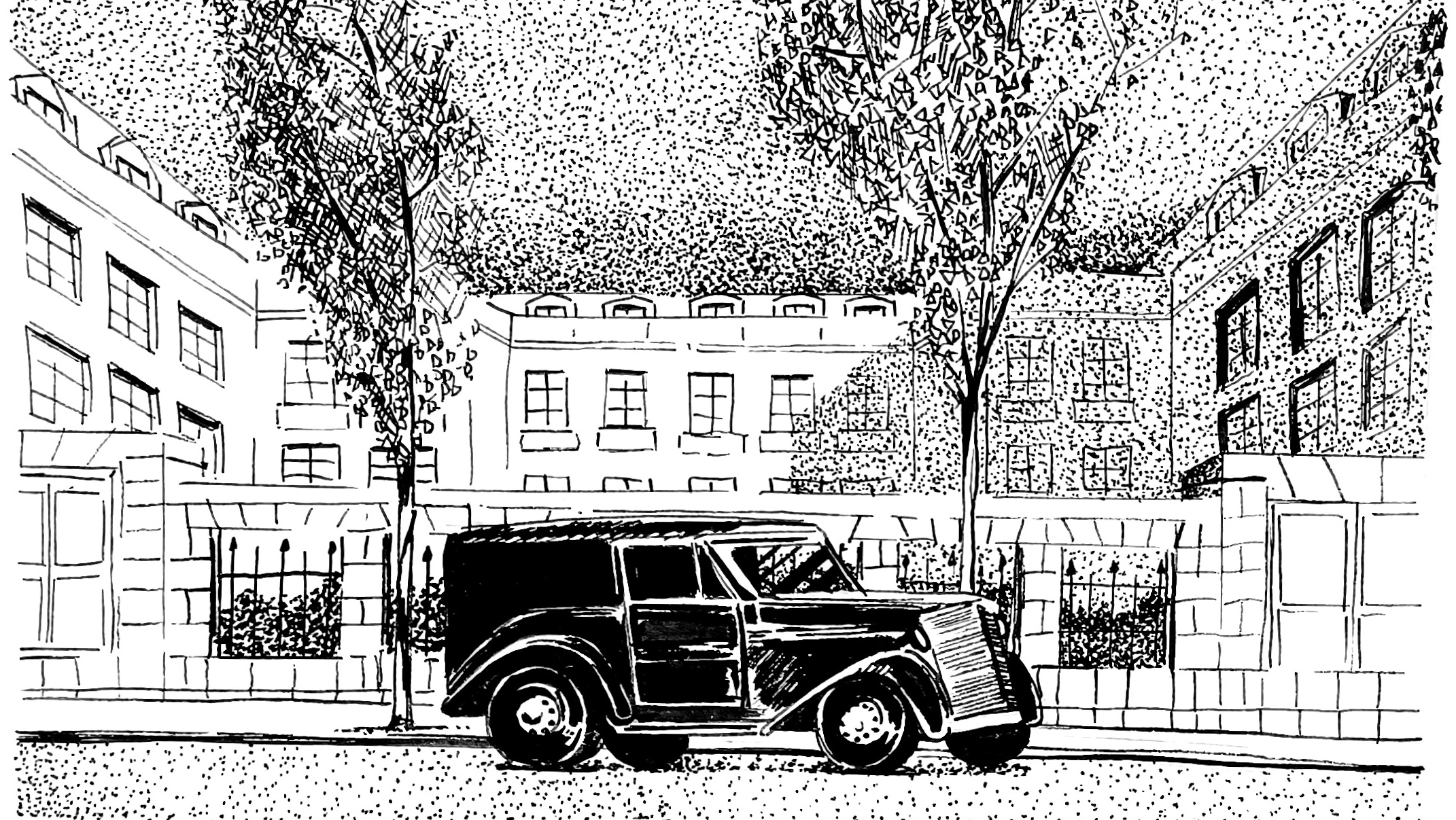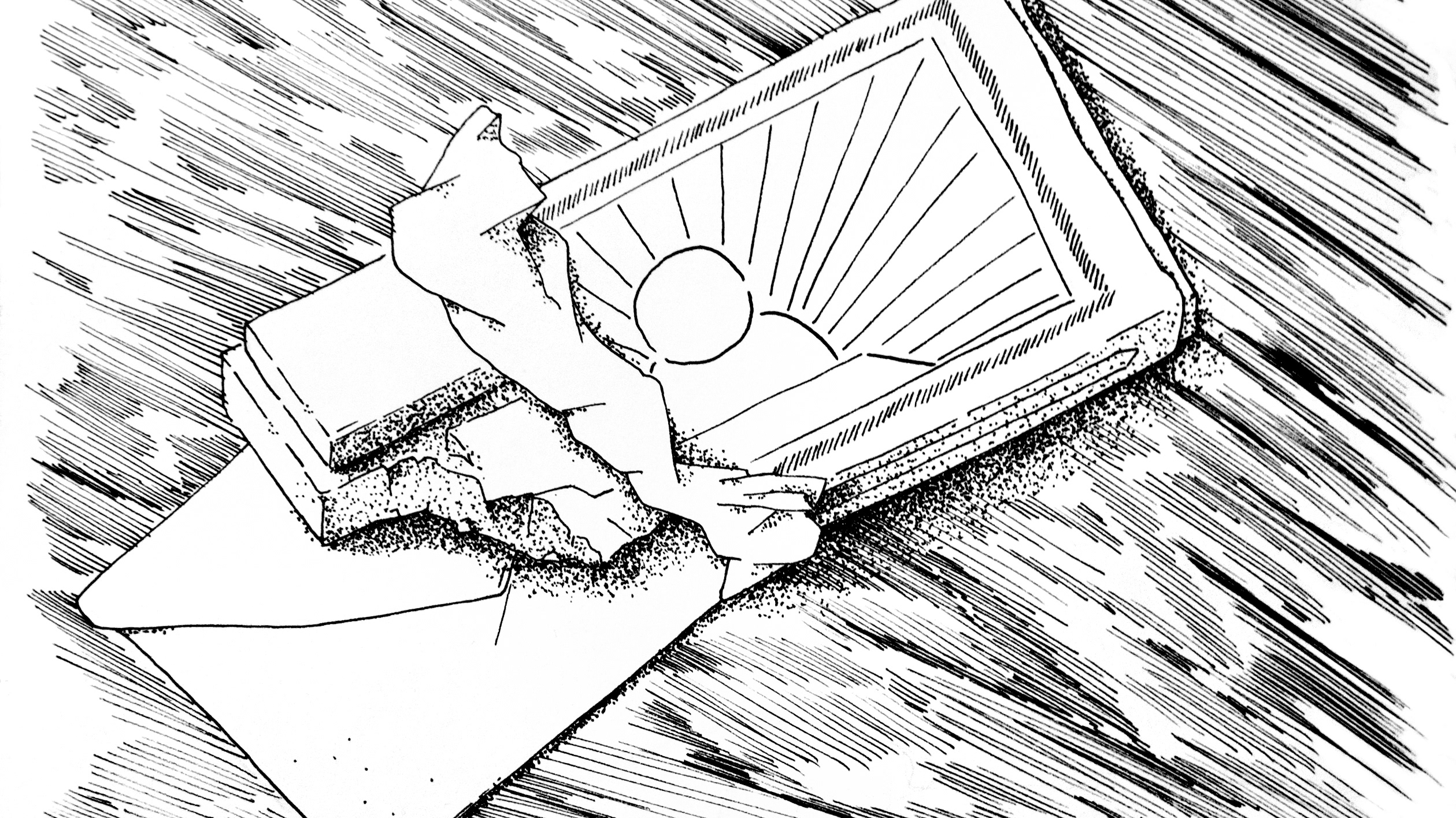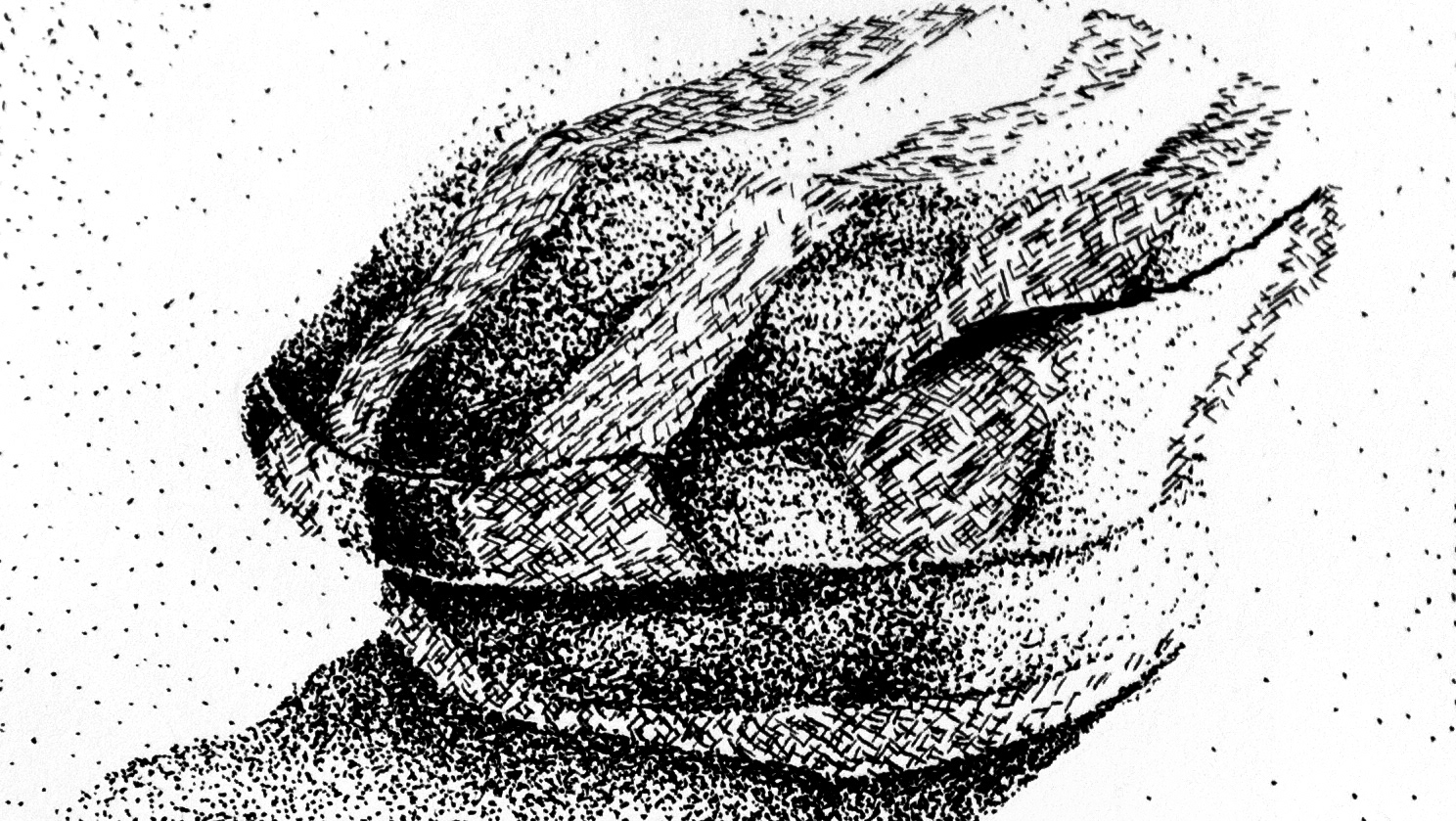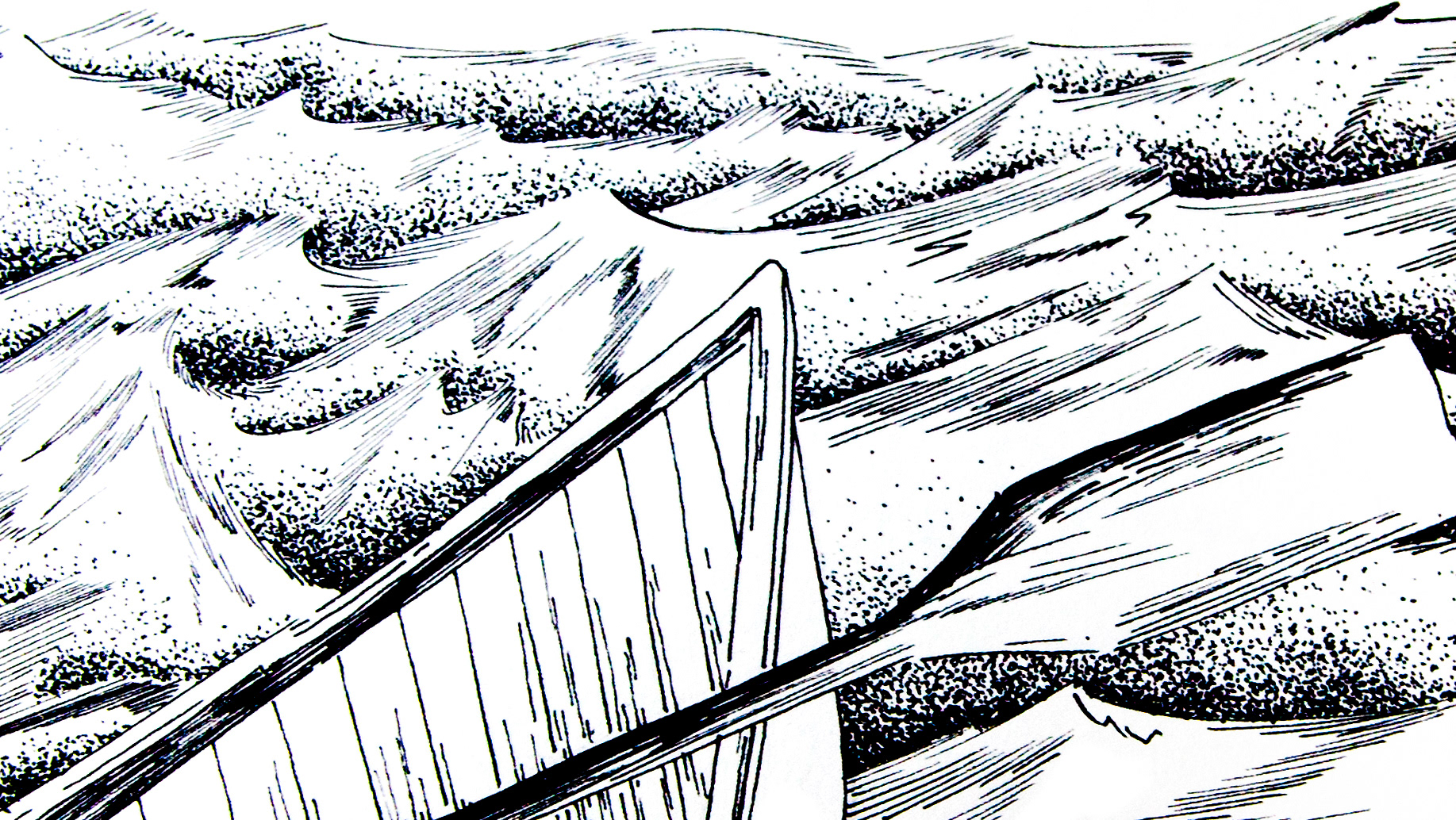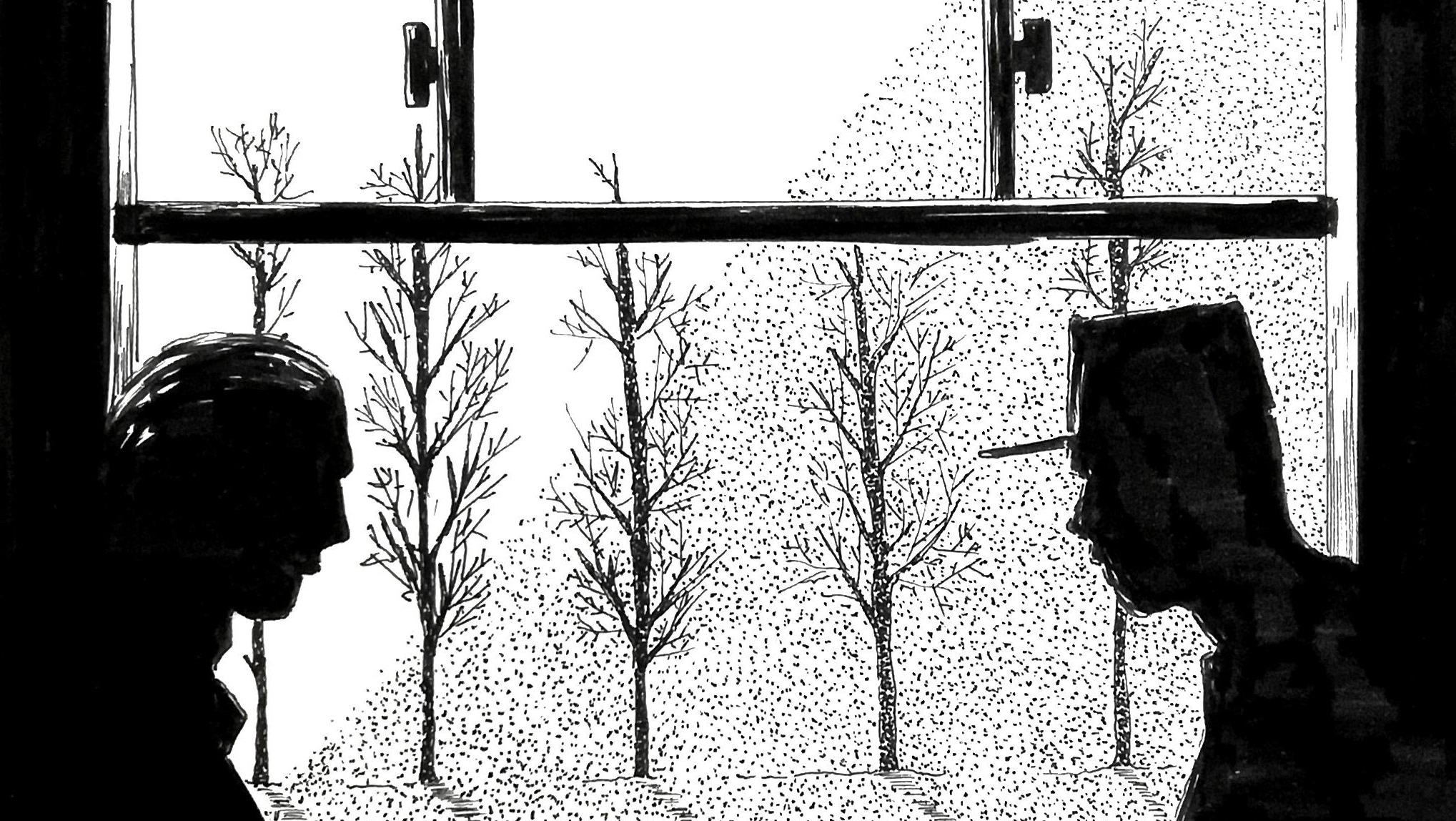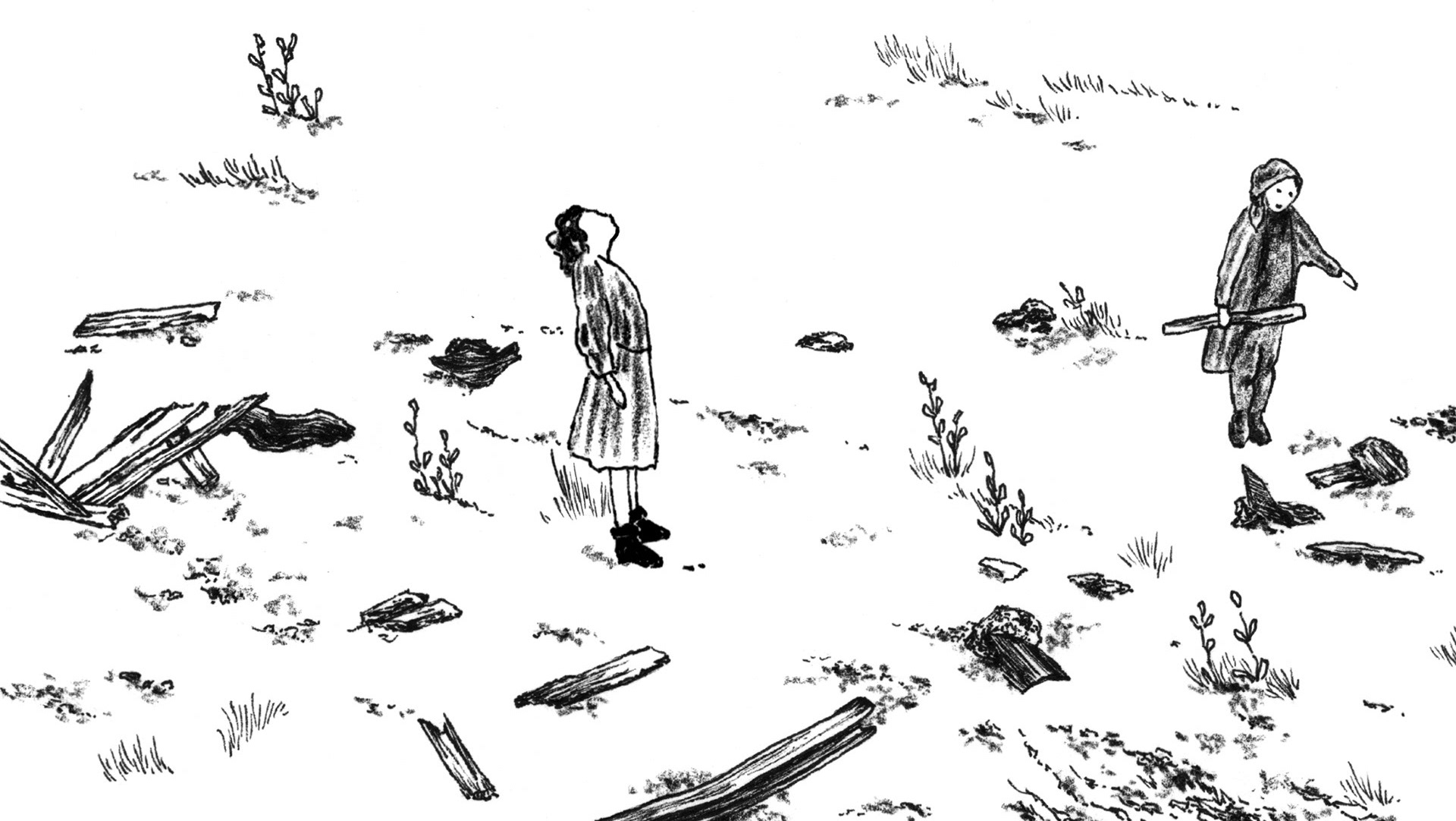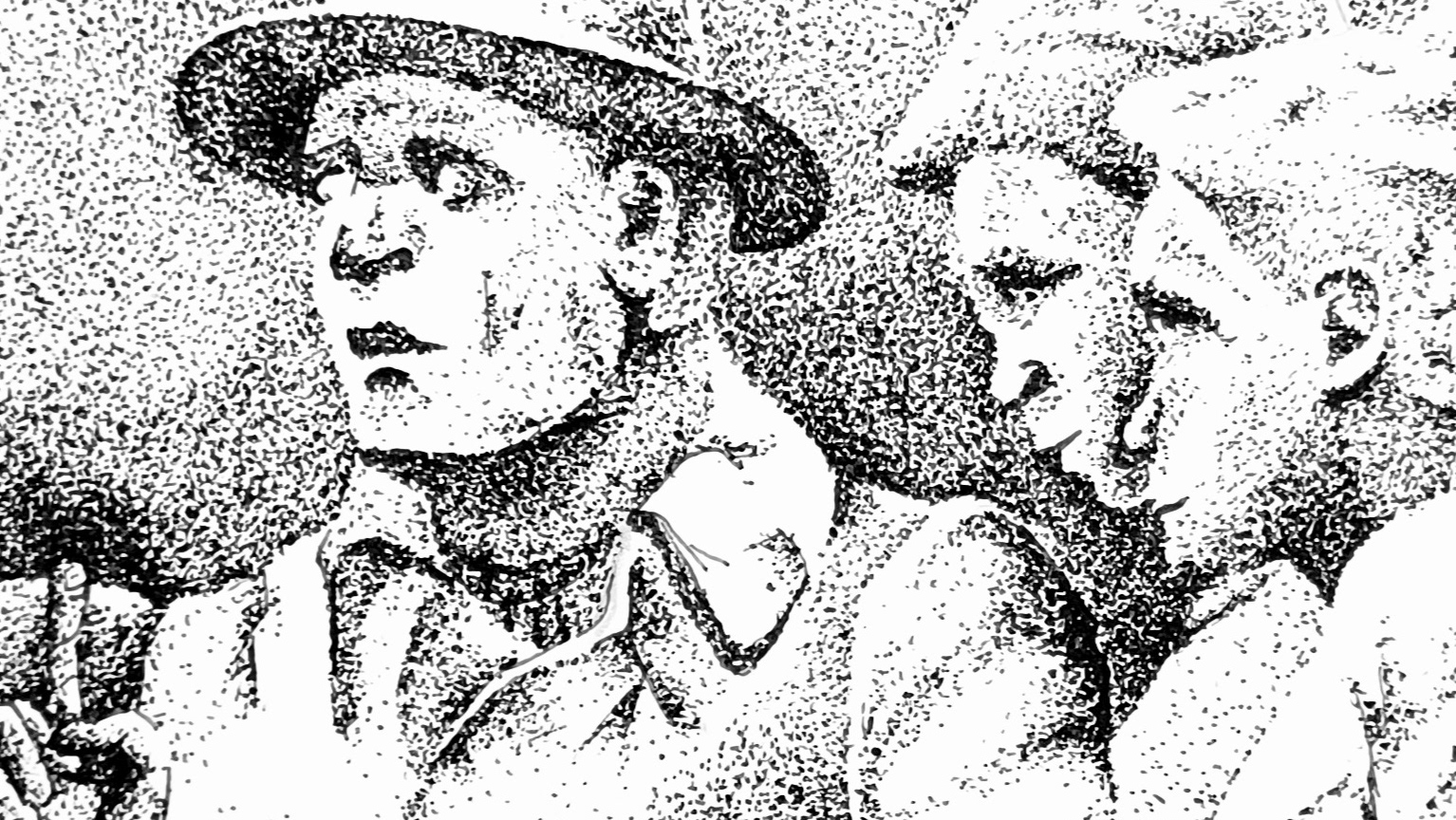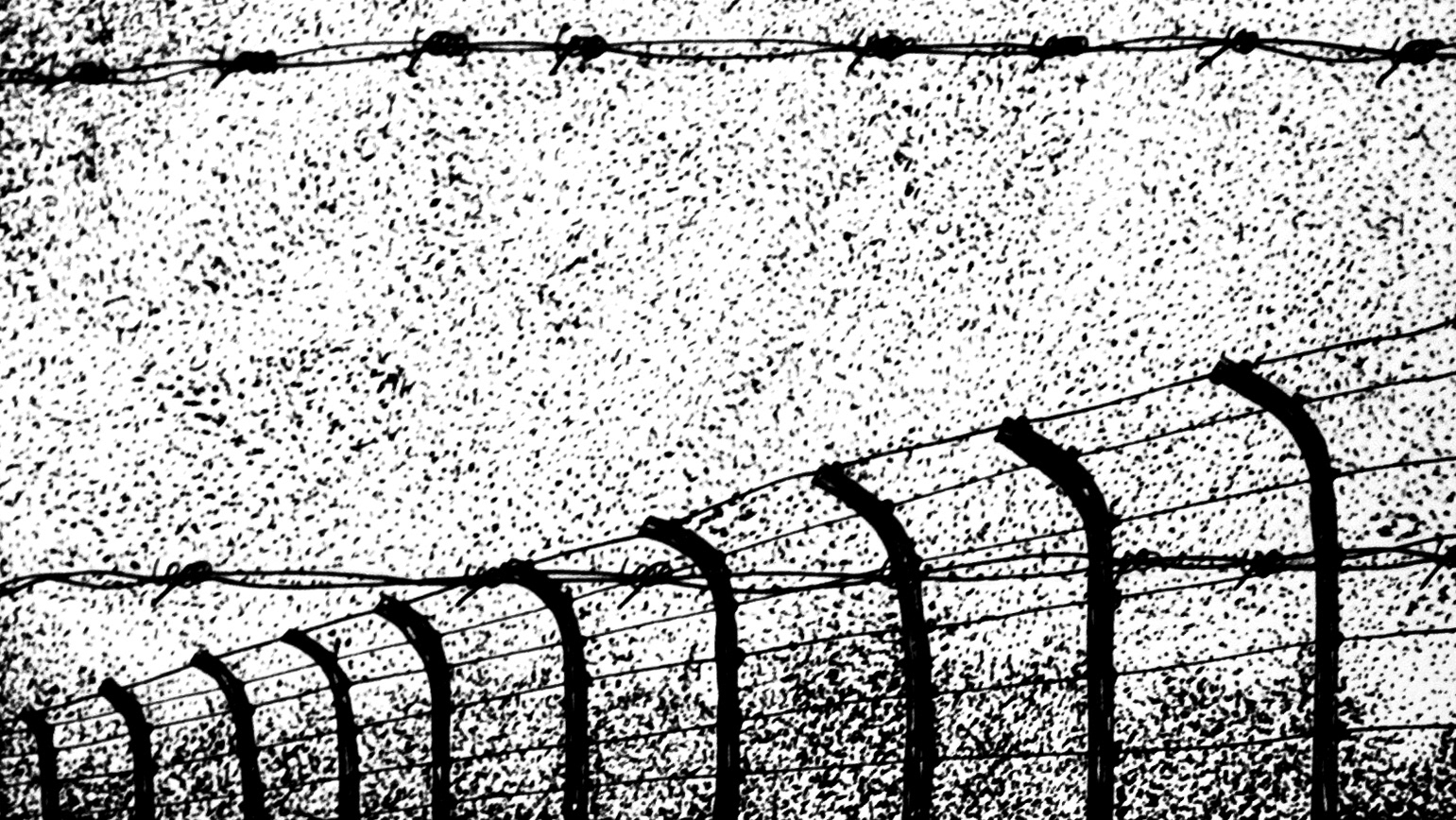a baton
On the 9th of July 1942, a day after the 45000 arrived in Auschwitz-Birkenau, the head of the block, the blockaltester, beat to death 2 prisoners. His goal was to educate the new arrivals, but you must enjoy at least a little bit such cruelty to do such work. The brute ordered a singer to walk forward. Some of the 45000 pushed Julien Villette, he was well known amongst the group to have a good voice.
Julien sang, he received a piece of bread and a little bit of herbata for his song. The block leader probably thought Julien was as cruel as he was, but he didn’t pay attention to the tears in his eyes.
Today is a day in September, Julien isn't entirely sure, maybe we are still in august. A SS had heard the tale of the cruel frenchman who didn't hesitate to sing as men he knew had just been beaten up, he thinks Julien would make a great asset, so he promotes him to vorarbeiter. In exchange for more food, more respect, Julien would stand in front of the trains and make sure everyone steps out in an orderly manner and at a fast pace. He should not hesitate to use violence so to keep the pace, he is even encouraged to use violence. And if the people inside the train are jewish, he is encouraged to be as violent as possible.
There he is, on his first day of work. The train arrives, stops, the doors are unlocked, then opened. All the other vorarbeiters around him, prisoners like him, don't wait a second and start hitting, grabbing the legs of the passengers and pulling them out. The passengers don't understand what is happening, they are told nothing and are already attacked.
Julien stands in front of his door, in front of the passengers. They are terrified, just like him. Julien can't move a muscle, he can't do a thing, he can't talk. The passengers jump out of the train, quickly, in an orderly manner, they know what they are supposed to do by looking around, they don't need to wait for Julien to start explaining, or worse, use violence. Julien won't do that, he would never do that, he couldn't do that. Julien doesn't have a violent particle in his body.
Back in Royallieu, in 1942, Julien was 21, an incredibly active young man. He was arrested as a hostage after a train was sabotaged and derailed around the town of Rouen in Normandy, North of France. Julien didn't say a word, but he had indeed something to do with the event. In Royallieu, Julien intended to make the best of his time, so he participated to many courses the place had to offer. He went to the drawing class, english, poetry, philosophy, solfege,... All of those courses were set up by the prisoners themselves, unbeknownst to the german authorities. The communist party almost transformed the camp into a secret university.
Julien loved singing above all else, he had a fantastic voice. On the 8th of June 1942, Julien's father, Henri, arrived in Royallieu, after spending 13 months in Clairvaux. He was arrested too, but Julien couldn't help being a little happy to see his father again. They spent all their time together, Henri worked as a gardener, and anytime he could, he hid and brought back vegetables. Thanks to him, Julien gained some energy back, it was a stark contrast with all those long months with so little in his stomach.
On the 22nd of June, as the prisoners organised a celebration, Julien got to sing on a stage in front of his father. The next day, everyone learned that 19 prisoners had escaped during that representation. Henri didn't care, he wanted to talk about his son, about that beautiful show, that fantastic voice. Henri and Julien spent 5 weeks together, until Julien was selected to leave on a train to nowhere. His father wasn't selected to that train, they parted ways.
Back to that day, the 9th of July, a day after their arrival to Auschwitz, one of the worst possible day for the 45000. They were terrified. How could such a place exist? Why were the SS so cruel? The rules of this camp seemed to come right out of hell, it was nothing like they experienced before, nothing could have prepared them for this. Everytime someone tried to protect another man, he would receive more hits, no question could be asked, everything they did was a reason to be hit.
That day, when Julien started singing, every 45000 felt powerless, they couldn’t have done anything, it was all so confusing.
Back to the present, after Julien was unable to complete his job as a vorarbeiter, the SS are disappointed. They thought he was cruel, they now believe he is weak. So they fire him and Julien has to find another Kommando. And now, they have their eyes on him, Julien must remain discreet, he has already made himself far too visible.
Another day, a polish kapo comes to him. He just beat up a prisoner in front of Julien, the man is already dead. He orders Julien to sing, once more. Not any song, he orders him to sing Bel-ami, a song about friendship, and the man being beaten up is a friend of Julien. He also says that tomorrow, if he wants, he could be the one holding the baton, forcing the other prisoners to behave.
This is clearly a test. But that time, Julien doesn't want to sing. He did it once, under a tremendous amount of panic, but now, Julien doesn't want to do it. Not in front of his friend, not ever in this place.
Julien stands in front of the SS and refuses.
The kapo is furious. Why wouldn't Julien do it for him? Why would he deny him of this pleasure?
He murders Julien.
They thought Julien was a cruel soul, they were disappointed he was a good man.
Notes
Thank you very much for listening to this episode of 3100045000, the story of 2 trains of french members of the resistance. My name is Matthieu Landour Engel, and I must point out that, apart from the 45000 and the 31000, I am not an expert on the Holocaust. This subject is a very wide one, and I don’t expect this series to be a clear overview of the holocaust, there is so much more to learn about the subject. I urge you to read other pieces of work on the matter. My project is mostly focused on the 31000 and the 45000, it doesn't represent wholefully the extent of the holocaust. .
This episode is about a young man called Julien Villette and his voice, which was part of a traumatizing event in Auschwitz-Birkenau.
Julien Villette did sing a song as a blockaltester beat up and killed 2 men, 2 45000. This led to believe that Julien himself was a cruel man, and this led to believe Julien could move up in the hierarchy and become a vorarbeiter.
So, let me give you a few more informations regarding the hierarchy within the camps, I will be trying to keep this simple. The prisoners lived in block, each block had an elder, or block elder or blockaltester, who would generally organise the block and talk for the group. Above there was a kapo, who was in charge of the control of the camp, whether administrative or physical control. Kapos were generally strong men, violent men, they were authorized and encouraged to use force. It is quite paradoxical to imagine that prisoners, because, kapos were prisoners, would use violence against other prisoners, just so they could have more rations or sleep in better conditions, but it was a reality.
You would have vorarbeiters, who were not technically above the kapos, just a different job. They were skilled labor who would take care of entire kommandos, chief workers. they too were allowed to use violence yet did less so. Julien was in such a position, taking care of the train arrivals, which was a violent job too. But Julien was apparently fired as he could not perform his job, thus became a prisoner again. He went up and then down the hierarchy ladder.
Above kapos and vorarbeiters were lageraltester, who were still inmates, chosen by SS like the kapos or the blockaltester and the vorarbeiter. Each of those groups had extra rationing and more rights than the regular inmates, therefore those were coveted positions, yet at first dominated by german criminal prisoners.
75% of the camp administration were guards, which were mostly SS, but also sometimes the soldiers from the wehrmacht. There were around 2000 in the camps around this period, the number of SS grew with time, it reached 4480 SS men and 71 female SS supervisors.
Finally there were lagerführer and then lagerkommandant, who at the time was Rudolph Hoess. Hoess was in charge of the entire personnel and the SS.
I must point out that, apart from Julien Villette, there are 2 cases of 45000, criminal prisoner or undesirables, who became vorarbeiter. They both broke all connections with the rest of the 45000 to become vorarbeiter and used violence in exchange of extended rights and rationing. I will not say their names, the first one eventually died of typhus inside the camp, the other one was later transferred to Dachau and he didn’t survive the liberation of the Dachau camp, as he was executed by other prisoners due to the violent nature of his past actions.
I will give you a few more informations about the train arrivals. At that time, the tracks leading to the Birkenau camp were not yet built, so the train stopped a few kilometers earlier, in a place called Alte judenrampe, between Auschwitz and Birkenau, at the Oswiecim freight station. this is where the majority of transports arrived between 1942 and May 1944.
When the train stopped, doors would open, and families, at 90% jewish families, were divided in 2 columns, men and older boys on one side, women and children on the other. This was, we can suppose, the work that Julien Villette was supposed to carry out, either to get the women and men out of the trains or making sure the 2 groups were correctly made.
Then the camp doctors would make a first selection, deciding who would be used as labor and assigned a number, which was 20% of the people roughly, and who would be brought directly to the gas chambers. I will obviously explain this further in later episode, this is only a first introduction.
As for Julien, I made a lot of assumptions. Julien did sing that song, he did die as he refused to sing for a second time. I am assuming that Julien was a kind soul, a young man forced to sing for a SS in a confusing and helpless situation, I could be wrong. I assumed he wasn’t a violent person, but then again, I could be wrong.
I was lucky I had a discussion with Marcelle Villette, Julien Villette’s sister. She kindly talked to me about her brother and shared some information with me. I was also lucky to access pictures of Julien’s notebooks from his time at the Royallieu’s camp. It is truly impressive to see all those documents, the amount of classes Julein attended, he seemed like a very dedicated and brilliant young man, and you can also see many of his beautiful ink drawings, truly remarkable.
I was also lucky to discuss with Henri Villette, Julien Villette’s nephew, son of Raoul Vilette, and grandson of Henri Villette. He told me about his grandfather, a quiet man, modest, profoundly dedicated to his family and those around him. He may have been very proud as he saw his son Julien performing in Royallieu, or he may have been quietly proud, this may be an exaggeration from my part.
My sources for this story are the book red triangles in Auschwitz, by Claudine Cardon Hamet, the website deportes-politiques-auschwitz.fr, memoire vive and the foundation for the memory of deportation website and the fantastic website auschwitz.org .
This is it for today, thank you very much for your attention.
